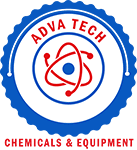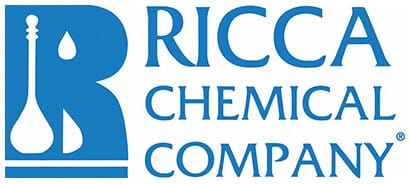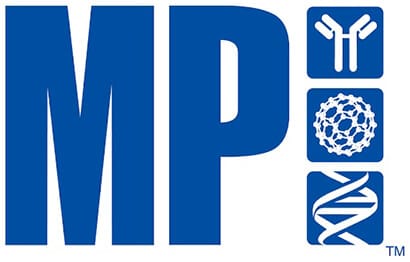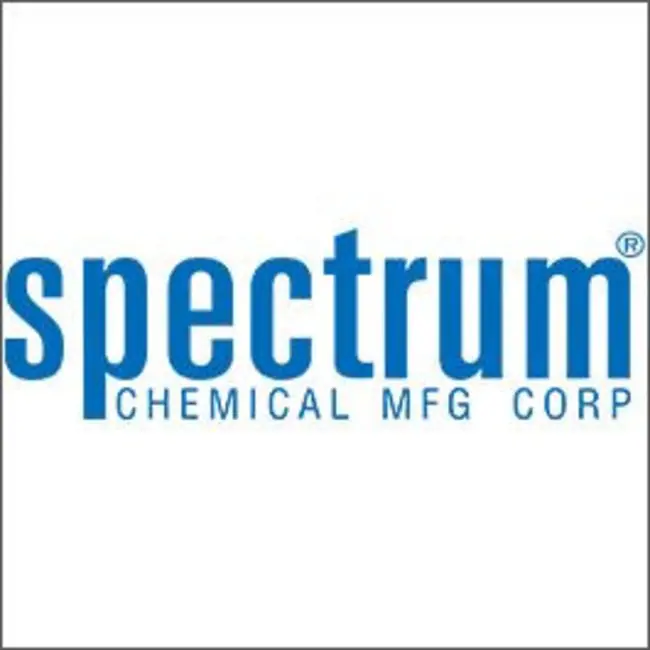Shop
Showing 78551–78600 of 163349 results
-
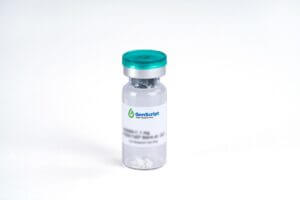
IL-19, Mouse
$2,018.25 Add to cart View Product DetailsInterleukin-19 (IL-19) is a cytokine belonging to the interleukin family. Structurally, IL-19 is grouped into the IL-10 sub-family, which also includes IL-20, IL-22, IL-24, and IL-26. In contrast to IL-10, which exists as a homodimer, IL-19 is stable and active as a monomer in vivo. IL-19 functions through the receptor complex composed of IL-20 Receptor α and IL-20 Receptor β, which is also utilized by IL-20 and IL-24. IL-19 is produced by active monocytes and stimulated synergistically by IL-17 and IL-13. The functions of IL-19 are to promote the development and function of Th2 cells and to enhance the production of Th2 cytokines. IL-19 is implicated in aging, vascular disease, Type I diabetes, and rheumatoid arthritis.
-
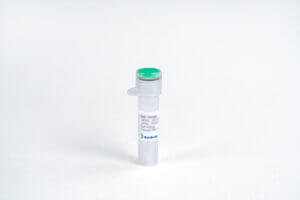
IL-19, Mouse
$86.25 Add to cart View Product DetailsInterleukin-19 (IL-19) is a cytokine belonging to the interleukin family. Structurally, IL-19 is grouped into the IL-10 sub-family, which also includes IL-20, IL-22, IL-24, and IL-26. In contrast to IL-10, which exists as a homodimer, IL-19 is stable and active as a monomer in vivo. IL-19 functions through the receptor complex composed of IL-20 Receptor α and IL-20 Receptor β, which is also utilized by IL-20 and IL-24. IL-19 is produced by active monocytes and stimulated synergistically by IL-17 and IL-13. The functions of IL-19 are to promote the development and function of Th2 cells and to enhance the production of Th2 cytokines. IL-19 is implicated in aging, vascular disease, Type I diabetes, and rheumatoid arthritis.
-

IL-19, Mouse
$340.69 Add to cart View Product DetailsInterleukin-19 (IL-19) is a cytokine belonging to the interleukin family. Structurally, IL-19 is grouped into the IL-10 sub-family, which also includes IL-20, IL-22, IL-24, and IL-26. In contrast to IL-10, which exists as a homodimer, IL-19 is stable and active as a monomer in vivo. IL-19 functions through the receptor complex composed of IL-20 Receptor α and IL-20 Receptor β, which is also utilized by IL-20 and IL-24. IL-19 is produced by active monocytes and stimulated synergistically by IL-17 and IL-13. The functions of IL-19 are to promote the development and function of Th2 cells and to enhance the production of Th2 cytokines. IL-19 is implicated in aging, vascular disease, Type I diabetes, and rheumatoid arthritis.
-

IL-1RA Rabbit mAb
$103.04 Add to cart View Product DetailsMonoclonal Antibodies
-

IL-1RA Rabbit mAb
$264.04 Add to cart View Product DetailsMonoclonal Antibodies
-
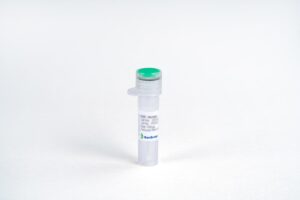
IL-1RA, Human
$1,073.81 Add to cart View Product DetailsInterleukin-1 receptor antagonist (IL-1ra) is a member of the IL-1 family. Endogenous IL-1ra is produced in numerous animal disease models as well as in human autoimmune and chronic inflammatory diseases. It binds to IL-1 receptors in competition with IL-1, but does not elicit intracellular response from this binding. Its role in counteracting the proinflammatory effects of IL-1 is being studied by numerous research groups. IL-4 and IL-13 have been shown to amplify the stimulatory effect of IL1-beta on the production of soluble and intracellular forms of IL1-ra. The regulated expression of IL1ra in various cell types has been shown to be influenced by cytokines. In synovial fibroblasts the synthesis of IL-1ra is markedly enhanced by IL-1, TNF-alpha, or PDGF.
-

IL-1RA, Human
$81.94 Add to cart View Product DetailsInterleukin-1 receptor antagonist (IL-1ra) is a member of the IL-1 family. Endogenous IL-1ra is produced in numerous animal disease models as well as in human autoimmune and chronic inflammatory diseases. It binds to IL-1 receptors in competition with IL-1, but does not elicit intracellular response from this binding. Its role in counteracting the proinflammatory effects of IL-1 is being studied by numerous research groups. IL-4 and IL-13 have been shown to amplify the stimulatory effect of IL1-beta on the production of soluble and intracellular forms of IL1-ra. The regulated expression of IL1ra in various cell types has been shown to be influenced by cytokines. In synovial fibroblasts the synthesis of IL-1ra is markedly enhanced by IL-1, TNF-alpha, or PDGF.
-

IL-1RA, Human
$254.44 Add to cart View Product DetailsInterleukin-1 receptor antagonist (IL-1ra) is a member of the IL-1 family. Endogenous IL-1ra is produced in numerous animal disease models as well as in human autoimmune and chronic inflammatory diseases. It binds to IL-1 receptors in competition with IL-1, but does not elicit intracellular response from this binding. Its role in counteracting the proinflammatory effects of IL-1 is being studied by numerous research groups. IL-4 and IL-13 have been shown to amplify the stimulatory effect of IL1-beta on the production of soluble and intracellular forms of IL1-ra. The regulated expression of IL1ra in various cell types has been shown to be influenced by cytokines. In synovial fibroblasts the synthesis of IL-1ra is markedly enhanced by IL-1, TNF-alpha, or PDGF.
-

IL-1RAcP Rabbit mAb
$103.04 Add to cart View Product DetailsMonoclonal Antibodies
-

IL-1RAcP Rabbit mAb
$264.04 Add to cart View Product DetailsMonoclonal Antibodies
-

IL-1RAcP Rabbit pAb
$239.89 Add to cart View Product DetailsPolyclonal Antibodies
-

IL-1RAcP Rabbit pAb
$86.94 Add to cart View Product DetailsPolyclonal Antibodies
-

IL-1α, Human
$3,458.63 Add to cart View Product DetailsIL-1 alpha is a non-secreted proinflammatory cytokine produced in a variety of cells including monocytes, tissue macrophages, keratinocytes and other epithelial cells. Both IL-1alpha and IL-1beta binds to the same receptor and has similar if not identical biological properties. These cytokines have a broad range of activities including, stimulation of thymocyte proliferation, by inducing IL-2 release, B-cell maturation and proliferation, mitogenic FGF-like activity and the ability to stimulate the release of prostaglandin and collagenase from synovial cells. However, whereas IL-1 beta is a secreted cytokine, IL-1 alpha is predominantly a cell-associated cytokine.
-

IL-1α, Human
$155.25 Add to cart View Product DetailsIL-1 alpha is a non-secreted proinflammatory cytokine produced in a variety of cells including monocytes, tissue macrophages, keratinocytes and other epithelial cells. Both IL-1alpha and IL-1beta binds to the same receptor and has similar if not identical biological properties. These cytokines have a broad range of activities including, stimulation of thymocyte proliferation, by inducing IL-2 release, B-cell maturation and proliferation, mitogenic FGF-like activity and the ability to stimulate the release of prostaglandin and collagenase from synovial cells. However, whereas IL-1 beta is a secreted cytokine, IL-1 alpha is predominantly a cell-associated cytokine.
-

IL-1α, Mouse
$3,458.63 Add to cart View Product DetailsInterleukin-1 alpha (IL-1α) is a non-secreted proinflammatory cytokine produced in a variety of cells including monocytes, tissue macrophages, keratinocytes and other epithelial cells. Both IL-1αand IL-1β binds to the same receptor and has similar if not identical biological properties. These cytokines have a broad range of activities including, stimulation of thymocyte proliferation, by inducing IL-2 release, B-cell maturation and proliferation, mitogenic FGF-like activity and the ability to stimulate the release of prostaglandin and collagenase from synovial cells. However, whereas IL-1β is a secreted cytokine, IL-1α is predominantly a cell-associated cytokine.
-

IL-1α, Mouse
$155.25 Add to cart View Product DetailsInterleukin-1 alpha (IL-1α) is a non-secreted proinflammatory cytokine produced in a variety of cells including monocytes, tissue macrophages, keratinocytes and other epithelial cells. Both IL-1αand IL-1β binds to the same receptor and has similar if not identical biological properties. These cytokines have a broad range of activities including, stimulation of thymocyte proliferation, by inducing IL-2 release, B-cell maturation and proliferation, mitogenic FGF-like activity and the ability to stimulate the release of prostaglandin and collagenase from synovial cells. However, whereas IL-1β is a secreted cytokine, IL-1α is predominantly a cell-associated cytokine.
-

IL-1α, Rat
$2,018.25 Add to cart View Product DetailsInterleukin-1 alpha (IL-1α), is produced in a variety of cells including monocytes, tissue macrophages, keratinocytes and other epithelial cells. Both IL-1 alpha and IL-1beta bind to the same receptor and have similar if not identical biological properties. These cytokines have a broad range of activities including stimulation of thymocyte proliferation via IL-2 release, B-cell maturation and proliferation, mitogenic FGF-like activity, and the ability to stimulate the release of prostaglandin and collagenase from synovial cells. However, whereas IL-1beta is a secreted cytokine, IL-1 alpha is predominantly a cell-associated cytokine.
-

IL-1α, Rat
$86.25 Add to cart View Product DetailsInterleukin-1 alpha (IL-1α), is produced in a variety of cells including monocytes, tissue macrophages, keratinocytes and other epithelial cells. Both IL-1 alpha and IL-1beta bind to the same receptor and have similar if not identical biological properties. These cytokines have a broad range of activities including stimulation of thymocyte proliferation via IL-2 release, B-cell maturation and proliferation, mitogenic FGF-like activity, and the ability to stimulate the release of prostaglandin and collagenase from synovial cells. However, whereas IL-1beta is a secreted cytokine, IL-1 alpha is predominantly a cell-associated cytokine.
-

IL-1α, Rat
$271.69 Add to cart View Product DetailsInterleukin-1 alpha (IL-1α), is produced in a variety of cells including monocytes, tissue macrophages, keratinocytes and other epithelial cells. Both IL-1 alpha and IL-1beta bind to the same receptor and have similar if not identical biological properties. These cytokines have a broad range of activities including stimulation of thymocyte proliferation via IL-2 release, B-cell maturation and proliferation, mitogenic FGF-like activity, and the ability to stimulate the release of prostaglandin and collagenase from synovial cells. However, whereas IL-1beta is a secreted cytokine, IL-1 alpha is predominantly a cell-associated cytokine.
-
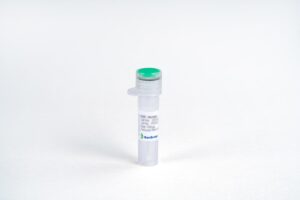
IL-1β, Human
$1,712.06 Add to cart View Product DetailsInterleukin-1 beta (rhIL-1β) is a proinflammatory cytokine produced in a variety of cells including monocytes, tissue macrophages, keratinocytes and other epithelial cells. Both IL-1 alpha and IL-1 beta binds to the same receptor and has similar if not identical biological properties. These cytokines have a broad range of activities including, stimulation of thymocyte proliferation, by inducing IL-2 release, B-cell maturation and proliferation, mitogenic FGF-like activity and the ability to stimulate the release of prostaglandin and collagenase from synovial cells. However, whereas IL-1 beta is a secreted cytokine, IL-1 alpha is predominantly a cell-associated cytokine.
-

IL-1β, Human
$94.88 Add to cart View Product DetailsInterleukin-1 beta (rhIL-1β) is a proinflammatory cytokine produced in a variety of cells including monocytes, tissue macrophages, keratinocytes and other epithelial cells. Both IL-1 alpha and IL-1 beta binds to the same receptor and has similar if not identical biological properties. These cytokines have a broad range of activities including, stimulation of thymocyte proliferation, by inducing IL-2 release, B-cell maturation and proliferation, mitogenic FGF-like activity and the ability to stimulate the release of prostaglandin and collagenase from synovial cells. However, whereas IL-1 beta is a secreted cytokine, IL-1 alpha is predominantly a cell-associated cytokine.
-

IL-1β, Human
$340.69 Add to cart View Product DetailsInterleukin-1 beta (rhIL-1β) is a proinflammatory cytokine produced in a variety of cells including monocytes, tissue macrophages, keratinocytes and other epithelial cells. Both IL-1 alpha and IL-1 beta binds to the same receptor and has similar if not identical biological properties. These cytokines have a broad range of activities including, stimulation of thymocyte proliferation, by inducing IL-2 release, B-cell maturation and proliferation, mitogenic FGF-like activity and the ability to stimulate the release of prostaglandin and collagenase from synovial cells. However, whereas IL-1 beta is a secreted cytokine, IL-1 alpha is predominantly a cell-associated cytokine.
-

IL-1β, Human(CHO-expressed)
$1,712.06 Add to cart View Product DetailsInterleukin 1 beta is a proinflammatory cytokine produced in a variety of cells including monocytes, tissue macrophages, keratinocytes and other epithelial cells. Both IL-1 alpha and IL-1 beta binds to the same receptor and has similar if not identical biological properties. These cytokines have a broad range of activities including, stimulation of thymocyte proliferation, by inducing IL-2 release, B-cell maturation and proliferation, mitogenic FGF-like activity and the ability to stimulate the release of prostaglandin and collagenase from synovial cells. However, whereas IL-1 beta is a secreted cytokine, IL-1 alpha is predominantly a cell-associated cytokine.
-

IL-1β, Human(CHO-expressed)
$94.88 Add to cart View Product DetailsInterleukin 1 beta is a proinflammatory cytokine produced in a variety of cells including monocytes, tissue macrophages, keratinocytes and other epithelial cells. Both IL-1 alpha and IL-1 beta binds to the same receptor and has similar if not identical biological properties. These cytokines have a broad range of activities including, stimulation of thymocyte proliferation, by inducing IL-2 release, B-cell maturation and proliferation, mitogenic FGF-like activity and the ability to stimulate the release of prostaglandin and collagenase from synovial cells. However, whereas IL-1 beta is a secreted cytokine, IL-1 alpha is predominantly a cell-associated cytokine.
-

IL-1β, Human(CHO-expressed)
$194.06 Add to cart View Product DetailsInterleukin 1 beta is a proinflammatory cytokine produced in a variety of cells including monocytes, tissue macrophages, keratinocytes and other epithelial cells. Both IL-1 alpha and IL-1 beta binds to the same receptor and has similar if not identical biological properties. These cytokines have a broad range of activities including, stimulation of thymocyte proliferation, by inducing IL-2 release, B-cell maturation and proliferation, mitogenic FGF-like activity and the ability to stimulate the release of prostaglandin and collagenase from synovial cells. However, whereas IL-1 beta is a secreted cytokine, IL-1 alpha is predominantly a cell-associated cytokine.
-

IL-1β, Mouse
$1,712.06 Add to cart View Product DetailsInterleukin-1 Beta (IL-1β) is a proinflammatory cytokine produced in a variety of cells including monocytes, tissue macrophages, keratinocytes and other epithelial cells. Both IL-1 alpha and IL-1 beta binds to the same receptor and has similar if not identical biological properties. These cytokines have a broad range of activities including, stimulation of thymocyte proliferation, by inducing IL-2 release, B-cell maturation and proliferation, mitogenic FGF-like activity and the ability to stimulate the release of prostaglandin and collagenase from synovial cells. However, whereas IL-1 beta is a secreted cytokine, IL-1 alpha is predominantly a cell-associated cytokine.
-

IL-1β, Mouse
$94.88 Add to cart View Product DetailsInterleukin-1 Beta (IL-1β) is a proinflammatory cytokine produced in a variety of cells including monocytes, tissue macrophages, keratinocytes and other epithelial cells. Both IL-1 alpha and IL-1 beta binds to the same receptor and has similar if not identical biological properties. These cytokines have a broad range of activities including, stimulation of thymocyte proliferation, by inducing IL-2 release, B-cell maturation and proliferation, mitogenic FGF-like activity and the ability to stimulate the release of prostaglandin and collagenase from synovial cells. However, whereas IL-1 beta is a secreted cytokine, IL-1 alpha is predominantly a cell-associated cytokine.
-

IL-1β, Mouse
$340.69 Add to cart View Product DetailsInterleukin-1 Beta (IL-1β) is a proinflammatory cytokine produced in a variety of cells including monocytes, tissue macrophages, keratinocytes and other epithelial cells. Both IL-1 alpha and IL-1 beta binds to the same receptor and has similar if not identical biological properties. These cytokines have a broad range of activities including, stimulation of thymocyte proliferation, by inducing IL-2 release, B-cell maturation and proliferation, mitogenic FGF-like activity and the ability to stimulate the release of prostaglandin and collagenase from synovial cells. However, whereas IL-1 beta is a secreted cytokine, IL-1 alpha is predominantly a cell-associated cytokine.
-

IL-1β, Mouse(CHO-expressed)
$1,651.69 Add to cart View Product DetailsInterleukin-1 (IL-1) is a family of cytokines that play a central role in the regulation of immune and inflammatory responses to infections or sterile insults. IL-1α and IL-1β are the first two members discovered in this family, which are the products of distinct genes recognizing the same cell surface receptors. IL-1α and IL-1β are structurally related polypeptides that show approximately 25% homology at the amino acid level. Both proteins are produced by a wide variety of cells in response to stimuli such as those produced by inflammatory agents, infections, or microbial endotoxins. The proteins are synthesized as 31 kDa precursors that are subsequently cleaved into proteins with molecular weights of approximately 17.5 kDa. The specific protease responsible for the processing of IL-1β is interleukin 1β-converting enzyme (ICE)/caspase-1. Mature human and mouse IL-1β share approximately 75% amino acid sequence identity where human IL-1β has been found to be active on murine cell lines.
-

IL-1β, Mouse(CHO-expressed)
$76.76 Add to cart View Product DetailsInterleukin-1 (IL-1) is a family of cytokines that play a central role in the regulation of immune and inflammatory responses to infections or sterile insults. IL-1α and IL-1β are the first two members discovered in this family, which are the products of distinct genes recognizing the same cell surface receptors. IL-1α and IL-1β are structurally related polypeptides that show approximately 25% homology at the amino acid level. Both proteins are produced by a wide variety of cells in response to stimuli such as those produced by inflammatory agents, infections, or microbial endotoxins. The proteins are synthesized as 31 kDa precursors that are subsequently cleaved into proteins with molecular weights of approximately 17.5 kDa. The specific protease responsible for the processing of IL-1β is interleukin 1β-converting enzyme (ICE)/caspase-1. Mature human and mouse IL-1β share approximately 75% amino acid sequence identity where human IL-1β has been found to be active on murine cell lines.
-

IL-1β, Mouse(CHO-expressed)
$245.81 Add to cart View Product DetailsInterleukin-1 (IL-1) is a family of cytokines that play a central role in the regulation of immune and inflammatory responses to infections or sterile insults. IL-1α and IL-1β are the first two members discovered in this family, which are the products of distinct genes recognizing the same cell surface receptors. IL-1α and IL-1β are structurally related polypeptides that show approximately 25% homology at the amino acid level. Both proteins are produced by a wide variety of cells in response to stimuli such as those produced by inflammatory agents, infections, or microbial endotoxins. The proteins are synthesized as 31 kDa precursors that are subsequently cleaved into proteins with molecular weights of approximately 17.5 kDa. The specific protease responsible for the processing of IL-1β is interleukin 1β-converting enzyme (ICE)/caspase-1. Mature human and mouse IL-1β share approximately 75% amino acid sequence identity where human IL-1β has been found to be active on murine cell lines.
-
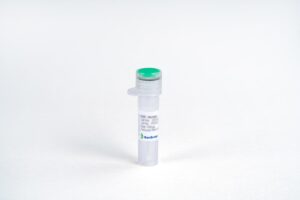
IL-1β, Rat
$2,018.25 Add to cart View Product DetailsInterleukin-1 Beta (IL-1 Beta) is a proinflammatory cytokine produced in a variety of cells including monocytes, tissue macrophages, keratinocytes and other epithelial cells. Both IL-1 alpha and IL-1 beta bind to the same receptor and have similar if not identical biological properties. These cytokines have a broad range of activities including, stimulation of thymocyte proliferation, by inducing IL-2 release, B-cell maturation and proliferation, mitogenic FGF-like activity and the ability to stimulate the release of prostaglandin and collagenase from synovial cells. However, whereas IL-1 beta is a secreted cytokine, IL-1 alpha is predominantly a cell-associated cytokine.
-

IL-1β, Rat
$86.25 Add to cart View Product DetailsInterleukin-1 Beta (IL-1 Beta) is a proinflammatory cytokine produced in a variety of cells including monocytes, tissue macrophages, keratinocytes and other epithelial cells. Both IL-1 alpha and IL-1 beta bind to the same receptor and have similar if not identical biological properties. These cytokines have a broad range of activities including, stimulation of thymocyte proliferation, by inducing IL-2 release, B-cell maturation and proliferation, mitogenic FGF-like activity and the ability to stimulate the release of prostaglandin and collagenase from synovial cells. However, whereas IL-1 beta is a secreted cytokine, IL-1 alpha is predominantly a cell-associated cytokine.
-

IL-1β, Rat
$271.69 Add to cart View Product DetailsInterleukin-1 Beta (IL-1 Beta) is a proinflammatory cytokine produced in a variety of cells including monocytes, tissue macrophages, keratinocytes and other epithelial cells. Both IL-1 alpha and IL-1 beta bind to the same receptor and have similar if not identical biological properties. These cytokines have a broad range of activities including, stimulation of thymocyte proliferation, by inducing IL-2 release, B-cell maturation and proliferation, mitogenic FGF-like activity and the ability to stimulate the release of prostaglandin and collagenase from synovial cells. However, whereas IL-1 beta is a secreted cytokine, IL-1 alpha is predominantly a cell-associated cytokine.
-

IL-1β, Rat
$3,540.56 Add to cart View Product DetailsInterleukin-1beta (IL-1β) is a non-secreted proinflammatory cytokine produced mainly by activated macrophages, as well as neutrophils, epithelial cells, and endothelial cells. It possesses metabolic, physiological, haematopoietic activities, and plays one of the central roles in the regulation of the immune responses. Both IL-1αand IL-1β binds to the same receptor and have similar but not identical biological properties. The mature rat IL1β shares 90 % a.a. sequence identity with cotton rat and mouse and 65 % to 77 % with canine, human,and rhesus IL1β.
-

IL-1β, Rat
$159.56 Add to cart View Product DetailsInterleukin-1beta (IL-1β) is a non-secreted proinflammatory cytokine produced mainly by activated macrophages, as well as neutrophils, epithelial cells, and endothelial cells. It possesses metabolic, physiological, haematopoietic activities, and plays one of the central roles in the regulation of the immune responses. Both IL-1αand IL-1β binds to the same receptor and have similar but not identical biological properties. The mature rat IL1β shares 90 % a.a. sequence identity with cotton rat and mouse and 65 % to 77 % with canine, human,and rhesus IL1β.
-

IL-1β, Rat
$521.81 Add to cart View Product DetailsInterleukin-1beta (IL-1β) is a non-secreted proinflammatory cytokine produced mainly by activated macrophages, as well as neutrophils, epithelial cells, and endothelial cells. It possesses metabolic, physiological, haematopoietic activities, and plays one of the central roles in the regulation of the immune responses. Both IL-1αand IL-1β binds to the same receptor and have similar but not identical biological properties. The mature rat IL1β shares 90 % a.a. sequence identity with cotton rat and mouse and 65 % to 77 % with canine, human,and rhesus IL1β.
-

IL-2 R α, His, Human
$1,224.75 Add to cart View Product DetailsInterleukin-2 receptor (IL-2R) is a heterotrimeric protein expressed on the surface of certain immune cells, such as lymphocytes, that binds and responds to the cytokine IL-2. The IL-2R is made up of 3 subunits – alpha (α), beta (β) and gamma (γ). The α and β chains are involved in binding IL-2, while signal transduction following cytokine interaction is carried out by the γ-chain, along with the β subunit. The β and γ chains of the IL-2R are members of the type I cytokine receptor family. IL-2R has a high binding affinity to IL-2 and is expressed by antigen-activated T lymphocytes (T cells). IL-2 Rα is also known as CD25, p55, and Tac (activated T cell) antigen.
-

IL-2 R α, His, Human
$63.83 Add to cart View Product DetailsInterleukin-2 receptor (IL-2R) is a heterotrimeric protein expressed on the surface of certain immune cells, such as lymphocytes, that binds and responds to the cytokine IL-2. The IL-2R is made up of 3 subunits – alpha (α), beta (β) and gamma (γ). The α and β chains are involved in binding IL-2, while signal transduction following cytokine interaction is carried out by the γ-chain, along with the β subunit. The β and γ chains of the IL-2R are members of the type I cytokine receptor family. IL-2R has a high binding affinity to IL-2 and is expressed by antigen-activated T lymphocytes (T cells). IL-2 Rα is also known as CD25, p55, and Tac (activated T cell) antigen.
-

IL-2 R α, His, Human
$146.63 Add to cart View Product DetailsInterleukin-2 receptor (IL-2R) is a heterotrimeric protein expressed on the surface of certain immune cells, such as lymphocytes, that binds and responds to the cytokine IL-2. The IL-2R is made up of 3 subunits – alpha (α), beta (β) and gamma (γ). The α and β chains are involved in binding IL-2, while signal transduction following cytokine interaction is carried out by the γ-chain, along with the β subunit. The β and γ chains of the IL-2R are members of the type I cytokine receptor family. IL-2R has a high binding affinity to IL-2 and is expressed by antigen-activated T lymphocytes (T cells). IL-2 Rα is also known as CD25, p55, and Tac (activated T cell) antigen.
-

IL-2, Human
$978.94 Add to cart View Product DetailsInterleukin-2 (IL-2) is a Oglycosylated, four α-helix bundle cytokine that has potent stimulatory activity for antigen-activated T cells. It is expressed by CD4+ and CD8+ T cells, γδ T cells, B cells, dendritic cells, and eosinophils. IL-2/IL-2R signaling is required for T-cell proliferation and other fundamental functions which are essential for the immune response. IL-2 stimulates growth and differentiation of B-cells, NK cells, lymphokine activated killer cells, monocytes, macrophages and oligodendrocytes.
-

IL-2, Human
$68.14 Add to cart View Product DetailsInterleukin-2 (IL-2) is a Oglycosylated, four α-helix bundle cytokine that has potent stimulatory activity for antigen-activated T cells. It is expressed by CD4+ and CD8+ T cells, γδ T cells, B cells, dendritic cells, and eosinophils. IL-2/IL-2R signaling is required for T-cell proliferation and other fundamental functions which are essential for the immune response. IL-2 stimulates growth and differentiation of B-cells, NK cells, lymphokine activated killer cells, monocytes, macrophages and oligodendrocytes.
-

IL-2, Human
$86.25 Add to cart View Product DetailsInterleukin-2 (IL-2) is a Oglycosylated, four α-helix bundle cytokine that has potent stimulatory activity for antigen-activated T cells. It is expressed by CD4+ and CD8+ T cells, γδ T cells, B cells, dendritic cells, and eosinophils. IL-2/IL-2R signaling is required for T-cell proliferation and other fundamental functions which are essential for the immune response. IL-2 stimulates growth and differentiation of B-cells, NK cells, lymphokine activated killer cells, monocytes, macrophages and oligodendrocytes.
-
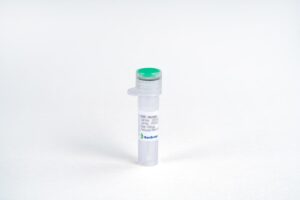
IL-2, Human
$599.44 Add to cart View Product DetailsInterleukin-2 (IL-2) is a Oglycosylated, four α-helix bundle cytokine that has potent stimulatory activity for antigen-activated T cells. It is expressed by CD4+ and CD8+ T cells, γδ T cells, B cells, dendritic cells, and eosinophils. IL-2/IL-2R signaling is required for T-cell proliferation and other fundamental functions which are essential for the immune response. IL-2 stimulates growth and differentiation of B-cells, NK cells, lymphokine activated killer cells, monocytes, macrophages and oligodendrocytes.
-

IL-2, Human
$64.69 Add to cart View Product DetailsInterleukin-2 (IL-2) is a Oglycosylated, four α-helix bundle cytokine that has potent stimulatory activity for antigen-activated T cells. It is expressed by CD4+ and CD8+ T cells, γδ T cells, B cells, dendritic cells, and eosinophils. IL-2/IL-2R signaling is required for T-cell proliferation and other fundamental functions which are essential for the immune response. IL-2 stimulates growth and differentiation of B-cells, NK cells, lymphokine activated killer cells, monocytes, macrophages and oligodendrocytes.
-

IL-2, Human
$150.94 Add to cart View Product DetailsInterleukin-2 (IL-2) is a Oglycosylated, four α-helix bundle cytokine that has potent stimulatory activity for antigen-activated T cells. It is expressed by CD4+ and CD8+ T cells, γδ T cells, B cells, dendritic cells, and eosinophils. IL-2/IL-2R signaling is required for T-cell proliferation and other fundamental functions which are essential for the immune response. IL-2 stimulates growth and differentiation of B-cells, NK cells, lymphokine activated killer cells, monocytes, macrophages and oligodendrocytes.
-

IL-2, Mouse
$1,871.63 Add to cart View Product DetailsMature mouse IL-2 shares 56% and 73% aa sequence identity with human and rat IL-2, respectively. It shows strain-specific heterogeneity in an N-terminal region that contains a poly-glutamine stretch. Mouse and human IL-2 exhibit cross-species activity. The receptor for IL-2 consists of three subunits that are present on the cell surface in varying preformed complexes. The 55 kDa IL-2 R alpha is specific for IL-2 and binds with low affinity. The 75 kDa IL-2 R beta, which is also a component of the IL-15 receptor, binds IL-2 with intermediate affinity. The 64 kDa common gamma chain gamma c/IL-2 R gamma, which is shared with the receptors for IL-4, -7, -9, -15, and -21, does not independently interact with IL-2. Upon ligand binding, signal transduction is performed by both IL-2 R beta and gamma c. It drives resting T cells to proliferate and induces IL-2 and IL-2 R alpha synthesis. It contributes to T cell homeostasis by promoting the Fas-induced death of naïve CD4+ T cells but not activated CD4+ memory lymphocytes. IL-2 plays a central role in the expansion and maintenance of regulatory T cells, although it inhibits the development of Th17 polarized cells.
-

IL-2, Mouse
$155.25 Add to cart View Product DetailsMature mouse IL-2 shares 56% and 73% aa sequence identity with human and rat IL-2, respectively. It shows strain-specific heterogeneity in an N-terminal region that contains a poly-glutamine stretch. Mouse and human IL-2 exhibit cross-species activity. The receptor for IL-2 consists of three subunits that are present on the cell surface in varying preformed complexes. The 55 kDa IL-2 R alpha is specific for IL-2 and binds with low affinity. The 75 kDa IL-2 R beta, which is also a component of the IL-15 receptor, binds IL-2 with intermediate affinity. The 64 kDa common gamma chain gamma c/IL-2 R gamma, which is shared with the receptors for IL-4, -7, -9, -15, and -21, does not independently interact with IL-2. Upon ligand binding, signal transduction is performed by both IL-2 R beta and gamma c. It drives resting T cells to proliferate and induces IL-2 and IL-2 R alpha synthesis. It contributes to T cell homeostasis by promoting the Fas-induced death of naïve CD4+ T cells but not activated CD4+ memory lymphocytes. IL-2 plays a central role in the expansion and maintenance of regulatory T cells, although it inhibits the development of Th17 polarized cells.
-

IL-20, Human
$3,458.63 Add to cart View Product DetailsIL-20 is a member of the IL-10 family of regulatory cytokines which includes IL-10, IL-19, IL-20, IL-22, IL-24 and IL-26. Members of this family share partial homology in their amino acid sequences but they are dissimilar in their biological functions. IL-20 is a hematopoietic growth factor capable of stimulating colony formation by CD34+ multipotential progenitors, but not by other progenitor cells. IL-20 signals through a receptor system composed of type I IL-20R-α and type II IL-20R-β. Over-expression of IL-20 in keratinocytes expressing both receptor subunits has been implicated in the induction of inflammatory skin disease.
-

IL-20, Human
$155.25 Add to cart View Product DetailsIL-20 is a member of the IL-10 family of regulatory cytokines which includes IL-10, IL-19, IL-20, IL-22, IL-24 and IL-26. Members of this family share partial homology in their amino acid sequences but they are dissimilar in their biological functions. IL-20 is a hematopoietic growth factor capable of stimulating colony formation by CD34+ multipotential progenitors, but not by other progenitor cells. IL-20 signals through a receptor system composed of type I IL-20R-α and type II IL-20R-β. Over-expression of IL-20 in keratinocytes expressing both receptor subunits has been implicated in the induction of inflammatory skin disease.
